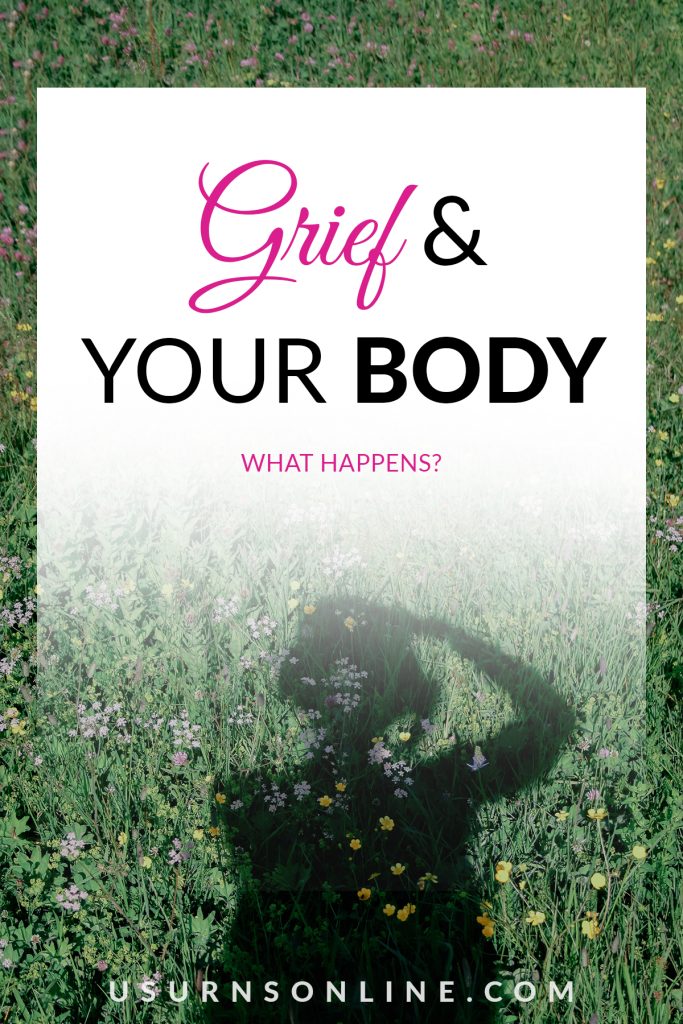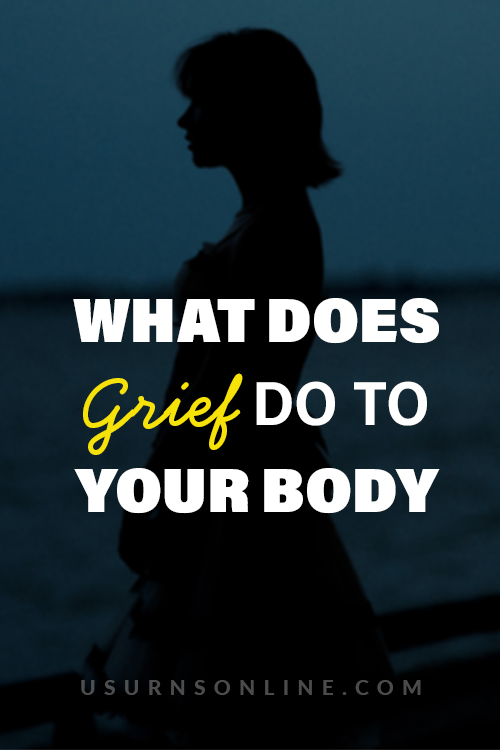Grief affects everyone. At some point in your lifetime you will experience grief, whether it is the death of a loved one or a pet, a breakup, or a dream that has fallen through.
Are you experiencing the physical effects of grief? Or have you ever wondered what happens to your body during this most stressful time?
You aren’t alone in your curiosity. Continue reading if you want to understand more about what grief can do to your body.
What Grief Does to Your Body
Grief can cause various problems with your body and affects more than just the emotions. Our physical body suffers from the stressors grief places upon us.
- Indigestion and gastrointestinal issues
- Cardiovascular problems and chest pain
- Sleeplessness (interrupted sleep and insomnia)
- Headaches
- Inflammation and joint pain
- Lowers your immune system
And the list goes on and on.
Does Grief Make You Tired?
Grief does make you tired. When grieving, you can experience sleepless nights, a hard time falling asleep and staying asleep, fatigue, and even insomnia.
Exhaustion is a common trait for someone who is grieving. You may even find that your sleep is interrupted by nightmares. These are prevalent responses to grief.
Here are a few ways to cope with sleepless nights:
- Don’t nap during the day
- Talk to your doctor about sleep aids, natural or prescription
- Limit your screen time before bed. This includes TV, phones, and tablets
- Cut out or down on your caffeine consumption
- Practice a bedtime ritual and try to keep a tight sleep schedule
Can You Hold Grief in Your Body?
Yes, you can hold grief inside of your body. The holistic belief is that grief is stored in your lungs and large intestines. But most people say they store their grief in their hearts. People going through the process of grieving describe “heartache.”
Memories will trigger this at any time. A smell, a song, or a specific date on the calendar can all cause your heart to remember.
Urns Made in the USA
What Does Grief Do to Your Brain?
There is a condition often referred to as “grief brain.” The condition can affect your concentration, memory, and comprehension.
This is a natural part of the grieving process. Your brain becomes overloaded with sadness, fear, and many other emotions. We are all taught that you will experience something of the five stages of grief:
- Denial — Refusal to believe this is happening
- Anger — Irritability, aggression, and resentment
- Bargaining — Overthinking and worrying
- Depression — Crying, helplessness, and hopelessness
- Acceptance — This is the way it is, I can live through this, I will get better
But we aren’t always aware that we’re experiencing an inability to concentrate or memory loss.
Does Grief Cause Brain Fog?
Yes, grief does cause brain fog. Brain fog will affect you physically, emotionally, and mentally. It may last a few days, weeks, or even months. But eventually, it will fade and vanish.
Brain fog may cause you to feel mentally exhausted. Mental exhaustion is worse than physical exhaustion. You can sleep physical fatigue away, but not so with mental tiredness.
The “mushy” feeling in your brain is the body’s way of protecting you. It is a way to disconnect from the pain you are feeling. The fogginess has been associated with the feeling of having a couple of drinks. Brain fog can help to take the edge off of your emotions.
How Does Grief Affect Decision-Making?
Grief affects all of us at different rates. Your efficiency in decision-making may not be at its best. You really should not make massive changes or life-altering decisions during grief. You may regret those decisions once you are through the grieving process.
Grief experts say to wait at least six months after you lose a loved one to make significant decisions, such as selling your home or moving to a new state. These are massive undertakings at the best of times. You don’t want to add more stress to your already overloaded emotions.
You will have enough decisions that must be made after death; there is no need to add the extra burden of worrying over things that can wait.
Now is not the time to get rid of your loved one’s items. Hang onto those keepsakes and other reminders. Right now, it might hurt to be reminded, but those same items could bring you joy in a few months.
If these reminders cause you too much pain, pack them up for now and store them in your basement or spare bedroom. Once your emotions have calmed down, you can take the time to go through it and make sound decisions on what to keep and what to give or throw away..
During your grieving time, don’t decide to quit your job or change your career. Again, wait a minimum of six months before deciding a course of action.
There is a reason for the saying: “When your emotions are high, your intelligence is low.” It’s not an insult but a true statement. Making a hasty decision while grieving is never a good idea.
How Long Does Grief Fatigue Last?
Grief-stricken people are exhausted people. You may have never felt this tired before and might even consider that you are coming down with the flu.
Grief is overwhelming and will wear you out. Remember to take care of yourself. This is one of those times when your needs can be put ahead of everything else. Self-care is a vital part of recovering from this journey.
There is no timeline for your healing. You need to work through it. No one can tell you to “just get over it”; it all happens in your time frame. Be patient with yourself.
When Is Grief the Worst?
Grief affects everyone differently. There are no hard-set rules on what the most challenging part is or should be.
Grief specialists say the most brutal emotional losses are those of a spouse. But again, this doesn’t apply to everyone. Where one person might be devastated by the loss of their spouse, another person might feel relief — relief that their loved one is no longer suffering.
They may be able to look at their loss differently than someone who has unexpectedly lost their loved one.
There is no part of grief that is the worst or the best. Grief just is.
All deaths and losses need to be talked about. If you are struggling and unable to get past your loss, please contact a grief therapist, your doctor, a trusted family member, or your pastor. You can find grief therapists in your area through a quick online search.
There is no shame in reaching out for help.
Read Next: How Long Does Grief Last? A Helpful Grief Timeline





